Description
ABSTRACT
A Survey of the Legal Regime against Cybercrimes in Nigeria
Dr. Augustine Agom*
The domain of modern activities has extended beyond the turfs of land, sea, air and space to include the cyberspace. In this new environment there are immense endowments deployable for economic activities, development and governance. Deviants have also leveraged on the assets of the cyberspace to commit crimes and compromise national security. The nature and character of these crimes pose serious challenge for regulators across the world. To curb the menace of rogue activities on the cyberspace, international and national strategies have been formulated. In Nigeria, a National Cyber Security Policy and Strategy and Cybercrime Act were put in place in 2015. These efforts are to be complemented by existing legal regime on crimes generally in Nigeria. This discussion found the new initiatives to be robust and recommends effective implementation of the initiatives and application of the law. The need for proactive judiciary, capacity building and inter-agency co-operation and collaboration nationally and internally cannot be over-emphasised.
INTRODUCTION
In contemporary world, information technology is key to every conceivable action of the individual, group, state or a nation. This in reality is the information age and possession of the right information at the right time gives a competitive advantage. One cannot but agree with Samara who summed it up thus “look behind the wealth of nations and you find information; look beyond the poverty of nations and you find lack of information”.1
The application of technology to information generation, collection, collation, dissemination, use, consumption and preservation has transmogrified the organization of private and public life all over the world. The change is so fundamental that if a modern day Rip Van Winkle2 had fallen asleep ten years ago or even seven years for that matter, waking up today he would be transfixed at what Information and Communication Technologies (ICT) have done to our contemporary world. ICT have broken down boundaries and dismantled paternalistic control over national economies. By the migration to a virtual world or cyberspace, cost of business is drastically reduced, convenience greatly improved, integrity of information is better assured and information is made available real time and with such speed that was previously unknown. Today over 2 billion people are online and with over 6 billion internet connected devices. It is projected that by 2020, between 50 and 75 billion devices will be connected to the internet, about 4-7 connected devices per person.3 In 2014 alone about $8trillion changed hands in online commerce.4
The flip side of the coin is the profound concern for security of the person, group and the nation in the nascent virtual state. The rise in the use of identity cards/electronic payment cards theft or scam and hacking into official and private mail5 are proximate examples.
* Ph.D., BL. Associate Professor and Head, Department of Commercial Law, Faculty of Law, Ahmadu Bello University, Zaria
- Noah Samara, Founder of Worldspace cited in Joseph E.U, ‘Globalisation and the Capital Market: The role of Information
Technology’ (Paper presented at the Workshop on Introduction to Capital Market 11, organised by the Securities and Exchange
Commission at SEC training school Abuja on 16 May 2005) - Wallace I., The Sketch Book of Geoffrey Crayon Gent (1809). A fictional character that went to the mountain to rest. On waking up he discovered that he had slept for 20 years and his entire village had changed
- Sanders T., United States: ‘The Internet of Things’ – Is Legislation Coming? Cited in Aderinlola S., “The Internet of Things, Important & Realistic Legal Perspectives Beyond the Hype” (Paper Presented at a Workshop for Judges on Legal Issues in
Telecommunications Held at Ibeto Hotel, Abuja on 23-25 June 2015) - Tyendezwa G. ‘Cybersecurity and Cybercrime Under Nigerian Law’ (Paper Presented at a Workshop for Judges on Legal Issues in Telecommunications Held at Ibeto Hotel, Abuja on 23 -25 June 2015)
- New York Times, (4 June 2015) reported the hacking of the computer systems of Columbia Pictures and Sony Pictures
Entertainment and the public record of Federal employees in the United States of America and even the President’s private mail by suspected hackers from North Korea, China and Russia respectively

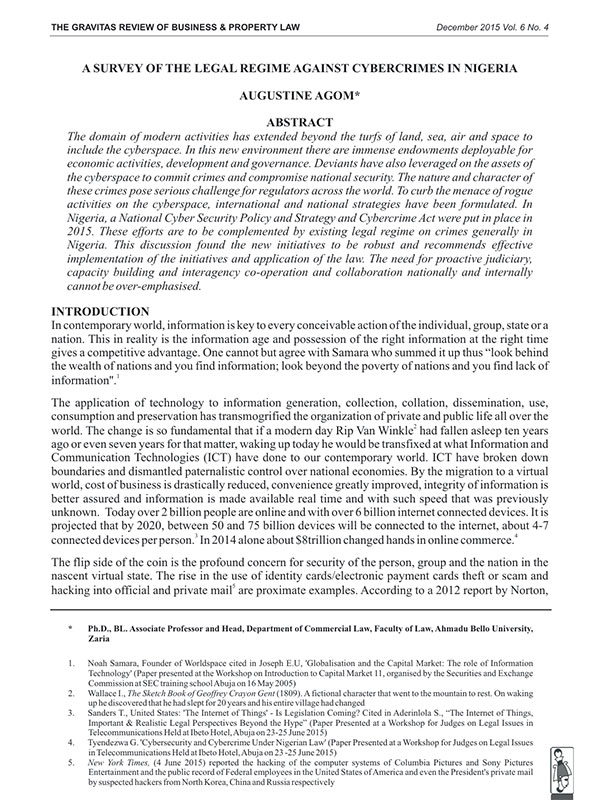
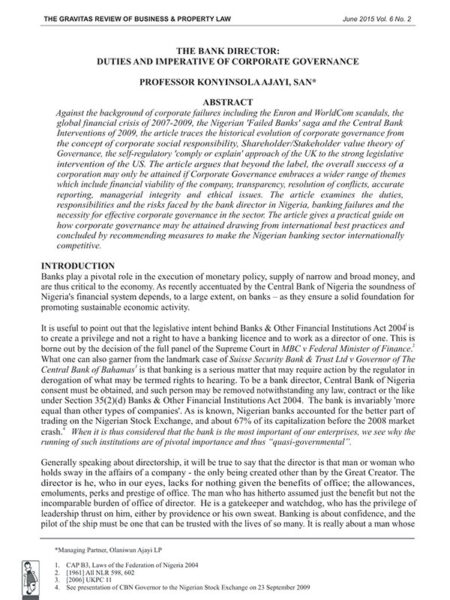
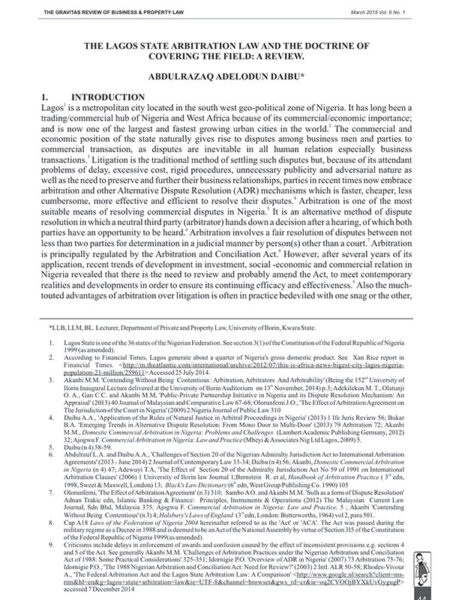
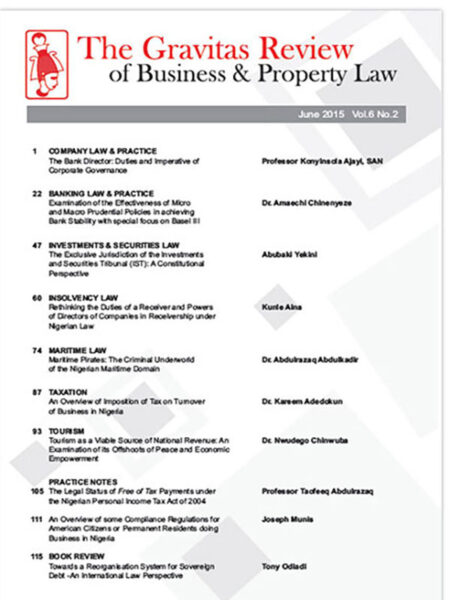
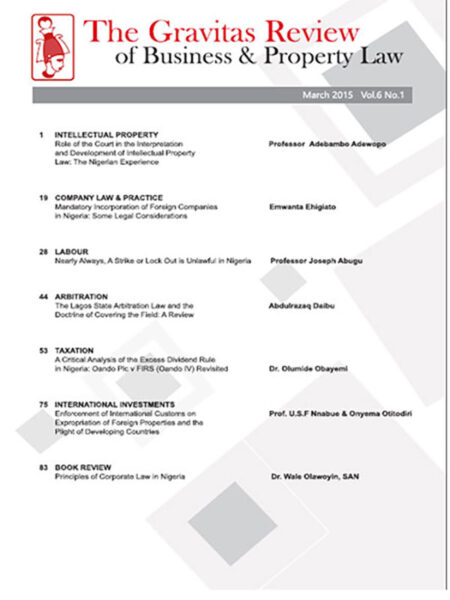


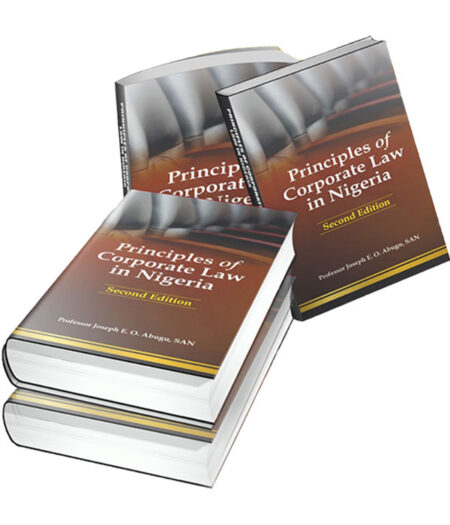
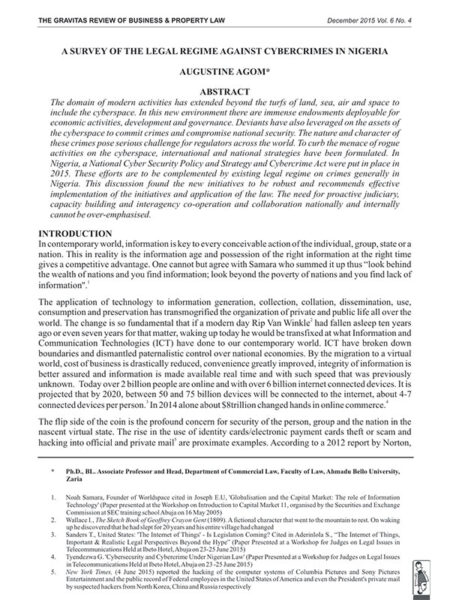
Reviews
There are no reviews yet.